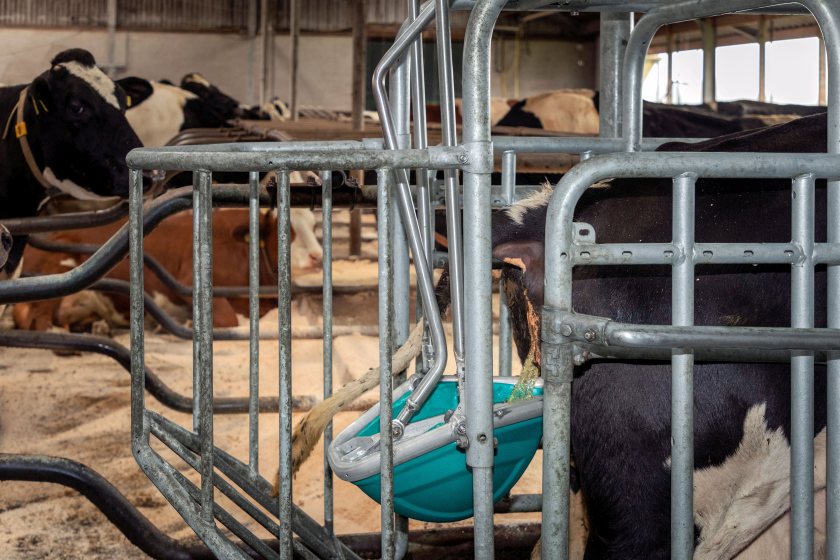From moo to loo: 'CowToilet' promises cleaner, greener UK farms

Cows are getting their own toilets in a pioneering Dutch innovation set to make its UK debut at Lamma 2026, promising to revolutionise farm sustainability by cutting ammonia emissions by up to a third.
This inventive system separates cow urine from faeces before the two can combine to form ammonia, a key pollutant linked to air quality and climate issues.
The idea rests on a simple biological fact: cows never urinate and defecate simultaneously. By collecting urine directly from beneath the cow’s tail, the CowToilet prevents the chemical reaction that creates ammonia.
The device fits neatly into an out-of-parlour feeding station that most dairy sheds can accommodate. As the animal feeds, a soft mechanism gently stimulates a nerve near the udder, triggering a natural reflex to urinate.
The liquid waste is then vacuumed into a sealed tank for storage — a clean, contained process that keeps barns fresher and drier.
According to research from Wageningen Livestock Research, this method can cut ammonia emissions by up to 38%, total nitrogen by 33%, and nitrous oxide by 18% compared with standard housing systems.
“Ammonia is one of the biggest environmental challenges facing the livestock sector,” says Hanskamp founder Henk Hanskamp.
“We wanted to create a system that works with nature, not against it – improving animal welfare and helping farmers meet environmental targets without adding to their workload.”
The CowToilet doesn’t just reduce pollution — it helps turn waste into value. Urine, rich in nitrogen, can be used as a natural fertiliser or even sold, while solid manure retains essential phosphate and organic matter to nourish the soil.
The separation makes it easier for farmers to apply nutrients precisely where they’re needed, cutting reliance on synthetic fertilisers and improving crop performance.
Cleaner housing and fresher air are additional benefits, boosting animal health and hygiene. Developed in partnership with Dutch farmers, engineers and academics including Wageningen University’s Paul Galama, the technology is already in use on over 35 farms in the Netherlands, where it has earned strong feedback.
Each unit, priced at around £28,000 and designed for 25 cows, represents a significant investment — but Hanskamp insists it’s one that pays off across productivity, compliance, and sustainability.
“This technology is about more than compliance,” he adds. “It’s about giving farmers tools that make sense – improving the environment, animal health, and profitability. The CowToilet shows that innovation and sustainability can go hand in hand.”
With its UK launch, the CowToilet could mark a turning point in how dairy farmers balance productivity with environmental responsibility — proving that even the most unlikely ideas can change the future of farming.








